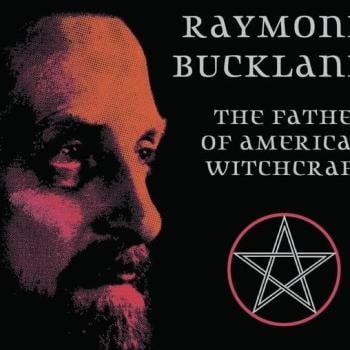Unlike many of my Pagan brothers and sisters I’ve generally had good experiences with religions beyond my own. I fondly remember much of my time as a Christian, I just could never quite get that all-male Trinity to make sense. I’ve had positive experiences with Muslim groups and while I’ve never been into a synagogue I’ve had a few Jewish girlfriends over the years.
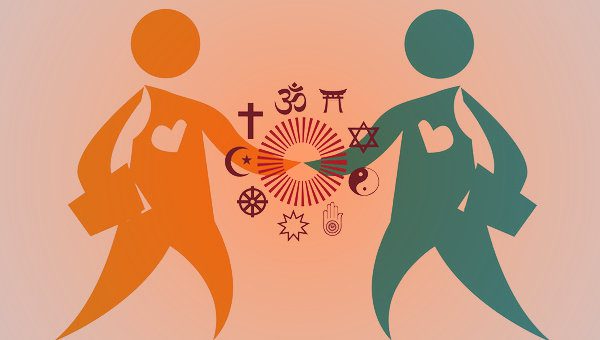
I’ve been a Pagan for over twenty years now and over that period of time I’ve never had any desire to leave my faith. In fact, my passion for Witchcraft has only increased over that period. However, there are times when I look to other faiths with an envious eye. Generally the shortcomings of my Paganism are reflections of my own personal weaknesses, but those deficiencies are always so much clearer to me when reflected back through the spirituality and belief of another.
The things I admire in other faiths are also a reminder that, no matter what the media says, there is generally good in most every religion. Faiths should not be defined solely by their zealots. Working at Patheos the last few months has been a solid reminder of that, and I’m heartened to be surrounded by such good people, even when most of them believe differently than me.
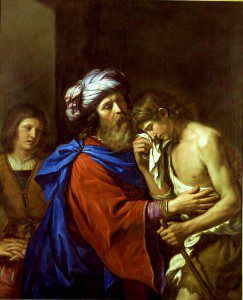
Two days after the tragedy in Charleston the daughter of victim Ethel Lance looked alleged killer Dylan Roof in the eye and said:
“I will never be able to hold her again, but I forgive you, and have mercy on your soul. You hurt me. You hurt a lot of people but God forgives you, and I forgive you.”
Bethane Middleton-Brown, sister of slain pastor Rev. DePayne Middleton Doctor shared similar sentiments:
“I’m a work in progress and I acknowledge that I’m very angry. We have no room for hate. We have to forgive. I pray God on your soul. And I also thank God I won’t be around when your judgment day comes with him.”
“I forgive you.” “We have no room for hate.” I like to think of myself as a forgiving person, but if someone took my brother or father away from me I doubt I could say such words. The people of Emmanuel AME are extraordinary individuals, and part of a truly wondrous congregation. Many of us have trouble forgiving the smallest slight, to forgive the taking of a loved one takes true courage and faith.
There is a lot of good in Christianity, but it so often gets lost in the haze of stupid coming from many of its loudest (and least informed) adherents. When Christianity is practiced as Jesus would have wanted it to be, it can truly be a beautiful thing. The people of Emmanuel AME are a reminder of that.
Islamic Discipline at Ramadan. By the time you read this Ramadan will have most likely ended, but for the last thirty days, from sunrise to sunset, billions of the world’s Muslims have been fasting. Most have not just been avoiding food during daylight hours, but drink as well. No water during daylight hours in June? That is a spiritual and religious commitment.
In addition to their daylight fast many Muslims perform an extra prayer each night of Ramadan, bringing their daily prayer total to six. I probably pray six times a day, but for minutes at a time and often informally. The discipline needed to engage in five to six prayers daily is commendable. Many Muslims also reread the Quran each Ramadan, while I’ll admit to a few overlooked pages in my Book of Shadows.
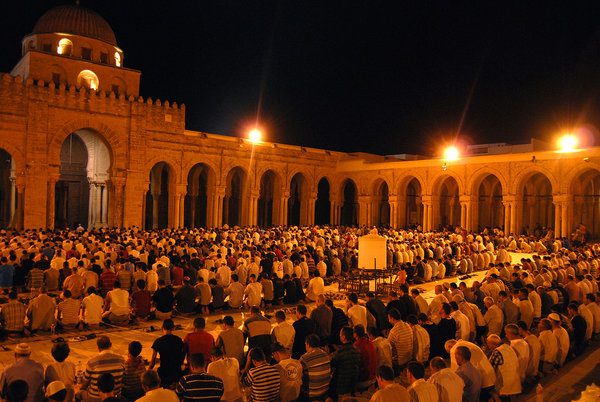
Much of the news coming from the Muslim world is often distressing, violent, and heartbreaking. That the majority of the world’s Muslims have been deeply engaged with and in their faith is up-lifting. In addition to fasting, praying, and studying the Quran many Muslims also engage in charitable acts every Ramadan.
I don’t think I’ll ever have the discipline needed to fast for thirty days each year, but I’m thinking this October might be a good time to adopt many of the other practices associated with Ramadan (with a Pagan twist of course). I can and should pray to my gods more. I could do more work for charity and I could certainly stand to do a little BoS study now and again.
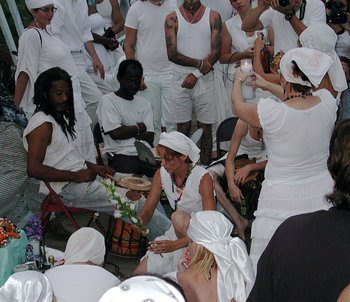
Going in I was already a bit familiar with Voodoo and the loa. I knew that rituals were often very long affairs, not limited to the comfortable hour or two I generally spend in my ritual room. I assumed the Priestess for this very public Voodoo rite would change things up and go for a Voodoo-light ritual so that I could be back in my wet tent by 2:00 am. To my delight and amazement that was not to be the case, and the ritual lasted literally all night. The next morning while waiting in line for a cup of coffee I saw a very tired looking Papa Legba devotee slowly eating his breakfast. (I had a workshop that morning, or I would have most likely stayed up for the entire ritual.)
I’ve certainly participated in some very long Wiccan rituals, but those are not generally the rule. I often find myself pulling back in ritual and trying to keep everything in a rather small window of time, right when it would make the most sense to let go of such concerns. The stresses of work and the constantly looming deadlines of tomorrow often keep me from truly embracing the idea of a “time that is not a time,” and keep me from truly walking between the worlds. I often wish my practice was more like the Voodoo rituals I’ve been a part of it, wild, ecstatic, and seemingly never-ending.
The Perseverance of Judaism. 3500* years of continual practice, influence, and presence in the Western World and beyond, remembering this often humbles and reminds me that we have a long way to go. When people ask me about the trips I’d like to take before I do they’re never surprised by the usual suspects: more of the British Isles, France, Greece, and Italy. But when I get to Israel many of my Pagan friends are taken back a bit. “Israel!? The birth place of monotheism!?!”
All of my life I’ve been in love with religion. I love its histories, its passions, and its power to (sometimes) shape the world for the better. Jewish history is no exception, and there’s something extremely passionate about sticking with one’s people and faith when all seems hopeless. That Judaism has been touched by tragedy many times over is not a revelation to anyone, how the Jewish people have dealt with such tragedy should be.
I long to touch the Second Temple’s Western Wall and to be near where one of Asherah’s sacred groves once stood. I want to look upon the Dead Sea Scrolls and gaze upon the words of ancient prophets and priests. Certainly Modern Paganism has “old things” and revered and respected dead, but nothing like the continual chain that is Judaism. What will Wicca be in 1000 years? Will the words in my BoS survive all of those centuries with little in the way of changes, or will the Wica no longer be?
It’s always good to have something to aspire to.
*This number can certainly be debated, and I’m of the opinion that a monotheistic Judaism was not widely practiced until the reign of King Josiah (640-609 BCE), and even then it had to be forced on a lot of people. However I’m a big fan of Judaism’s “polytheist period” and as the article points out, I would love to stand on a spot where people once worshipped “Yahweh and his Asherah.”








